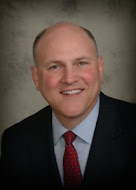How Do I Start?
Nov 6, 2007
When I started advising clients in the early 80's, talking to families of “average” means about trusts was unique, at least in my practice and community. There was a prevalent train of thought that trusts for the very wealthy, or at least only for clients who were concerned about estate and inheritance taxes. It was often felt that all trusts were unduly complex and always required professional administration. And this train of thought was, more often than not, fostered by professional advisors.
Today, it is more common for clients and advisors alike to hold a more “sophisticated” view of this process, having often read or heard about revocable living trusts, powers of attorney, and such, and their supposed virtues.
Whatever the preconceived ideas a client arrives with, they are too often influenced by misconception and often, misinformation. Having conducted a fair number of “informational seminars” over the years, I have often said to prospective clients that “I don’t really care how you get started, as long as you get started.” Of course, from a purely selfish point of view, I would like it if all clients started the process with me. But in reality, there is a certain amount of value to my suggestion to just start somewhere.
However, I am concerned about the proliferation of self-proclaimed “estate planners” out there. Like any worthwhile endeavor, to do something well involves doing the hard work to master the subject, usually combined with a degree of professional training, staying current, and experience. It is equally important that the Estate Planning Professional know the areas where s/he is qualified and those which should be referred to other more qualified (by training and experience) professionals. Unfortunately, there is no “UL” listing for “Estate Planners.” It is not a “regulated industry” (at least not in Michigan) and so you need not have any credentials to call yourself an “Estate planner.” It is also a multi-disciplinary “industry.” Lawyers, Accountants, Financial Planners, Life Insurance professionals, Trust Officers, and other similar professionals are involved in the Estate Planning process. Any one or more of them may serve as the coordinator of your planning.
I am also concerned about the easy availability of information (whether accurate or misinformation and whether or not properly interpreted), from the internet, the media, and in bookstores. I worry about the infomercial approach to estate planning. I’ll be the first to acknowledge that I make my living “selling” my services as an Estate Planning Attorney. While I do produce legal documents to be used in the estate plan, I do not sell forms, or a kit, or a “one-size-fits-all” approach. Rather, I sell my experience and expertise in counseling clients about the proper tools and techniques for their particular circumstances.
So how do I answer the question, “How do I start?” Somewhere - by all means, just start. But hopefully that means that you seek out a qualified professional for assistance. I’ll comment on how I believe you should find and determine just who is a “qualified professional” next time.
Thanks for reading . . .








